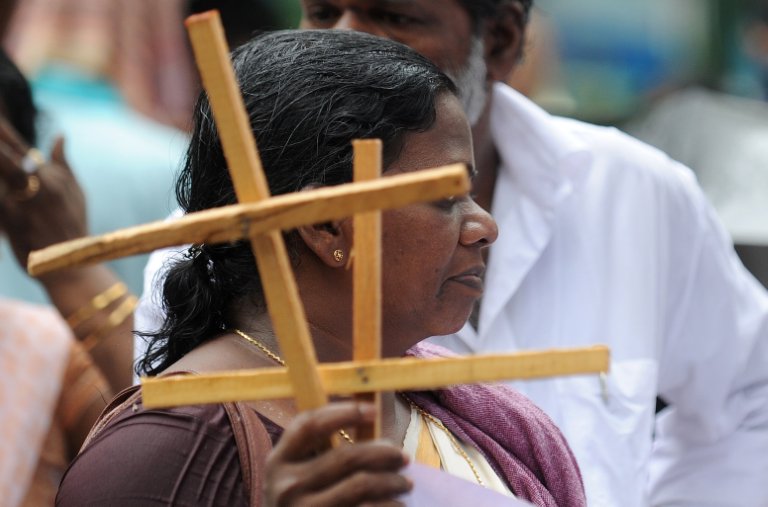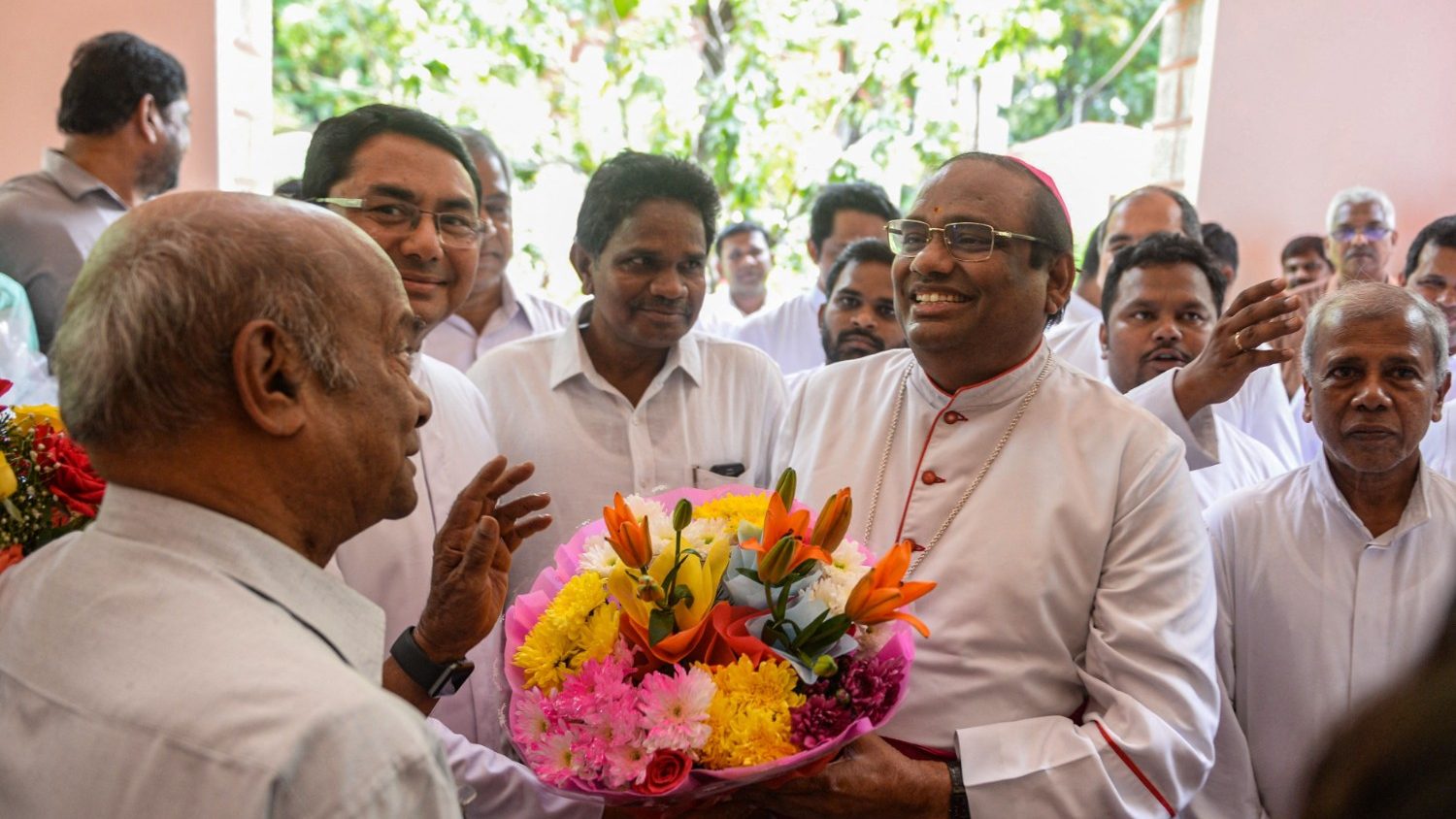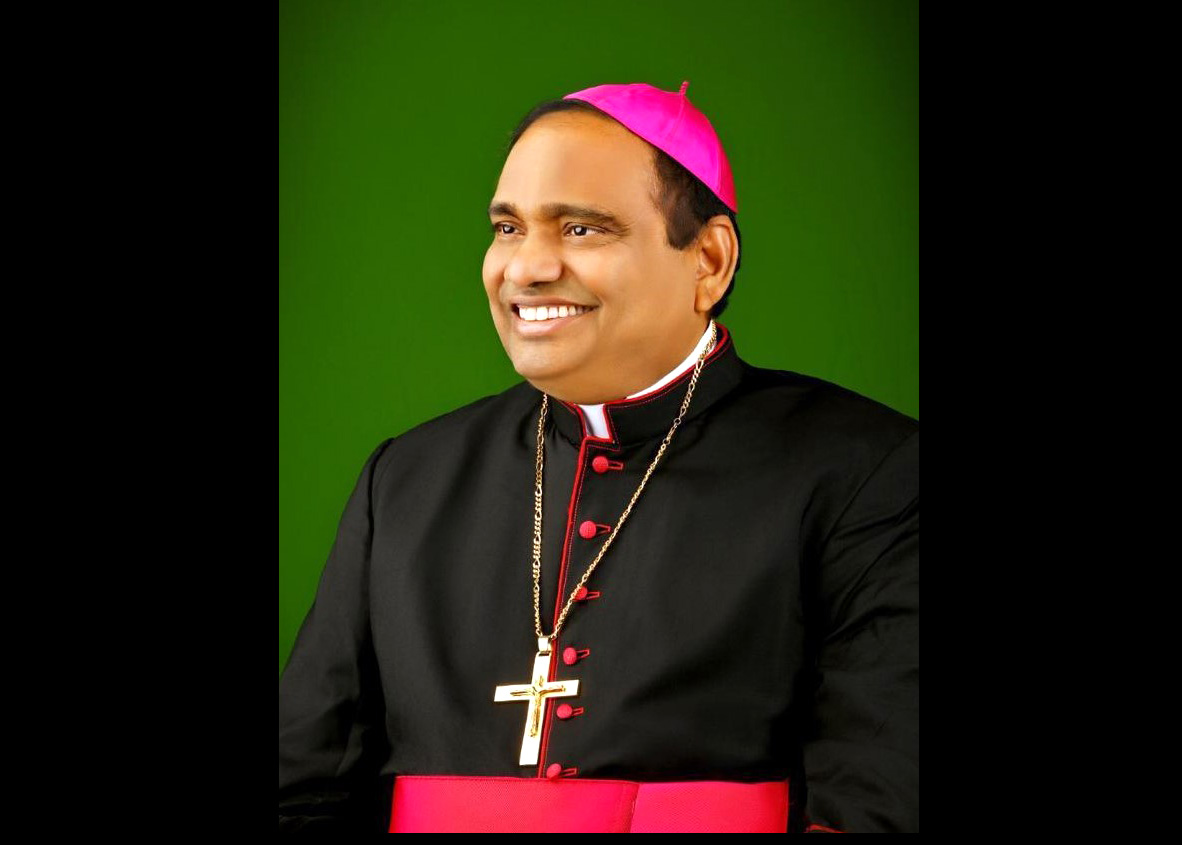By Jose Kavi
New Delhi, May 29, 2022: Catholics in India seem euphoric after Pope Francis named a Dalit from the country among the 21 new cardinals.
Archbishop Anthony Poola of Hyderabad, who was born in a Dalit Catholic family in the southern Indian state of Andhra Pradesh, is among the two new cardinals from India. The other Indian is Archbishop Filipe Neri Ferrao of Goa and Daman. The Pope will create the cardinals at a consistory on August 27.
A Dalit cardinal is “certainly a cause of pride and joy for Dalits who have been requesting the Vatican for so long,” says Sister Manju Devarapalli, secretary of the National Dalit Christian Watch (NDCW). The Carmelite Missionaries nun explains that Cardinal-elect Poola is the first Dalit and first Telugu “who has been elevated to a greater servanthood” to help the Dalit community better.
Archbishop Poola’s elevation comes amid talks about an Indian Dalit Rite in the Catholic Church and protests by Dalit groups for bishops from their community.
A Dalit cardinal was also their demand for decades and they stepped it up after Pope John Paul II on October 21, 2003, made Cardinal Telesphore Placidus Toppo, the then archbishop of Ranchi, a prince of the Church. Cardinal Toppo claimed that the new title recognized India’s tribal Church.
Such recognition for the Dalits took 19 years more years, but it has made Jesuit Father Irudhaya Jothi, , “extremely happy.” The grassroots activist now working in northeastern India says it is “a proud moment for the Dalit community in the world.”
Father Jothi and Ravi Kumar, a Dalit leader from Vijayawada diocese in Andhra Pradesh, say Archbishop Poola’s appointment shows that Pope Francis continues to give recognition and representation to the Churches at the periphery and the marginalized communities.
Father Jothi said he prays that the Church gives “an emphatic hearing” to the standing demands of the Dalits, “the most exploited community.”
Sister Sujata Jena, a lawyer activist, too prays that the Dalit cardinal will bring in hope and open new paths for the empowerment of “the age old marginalized community” to become “children of God equal to others.”
The member of the Sacred Hearts of Jesus and Mary told Matters India that the “groundbreaking news” shows the Indian Dalit Christians’ long journey of courage and determination has finally borne fruits. She said the news made her pause to “thank the Lord for the fitting gift to the Dalit Catholic community in India.”
Sister Jena, however, regrets that Dalits, who form more than 65 percent of Catholics in India, have been victims of structural injustice both in the Church and society.
She says the Dalit cardinal has “a greater responsibility to take up the millennium-old exploited community’s concern to the mother Church. The Dalit Catholics will look up to their own cardinal for a greater understanding and justice and equality as the Church globally moves toward the Synodal Church.”
Franklin Caesar Thomas, a Supreme Court lawyer and one of the founders of the National Council of Dalit Christians, says the entire Dalit Christian community in India appreciates Pope Francis’ gesture to appoint a Dalit cardinal. “In the same way, let the Church try to bring more Dalit bishops in Tamil Nadu by removing the caste and untouchability mindset,” Thomas told Matters India.
John Dayal, veteran journalist and lay leader, says the two new promotions “auger well for the Church in India.” The new Dalit cardinal sends “an important signal to the marginalized community which feels it has not got from Rome or CBCI [Catholic Bishops’ Conference of India] the recognition they deserve,” he told Matters India.
Dayal points out the Church in Andhra Pradesh and Telangana, called the Telugu states, have “a very lively and expanding Church.”
A C Michael, former Member of Delhi Minorities Commission and president of Federation of Catholic Associations of Archdiocese of Delhi, says Pope Francis has cleared a misunderstanding that cardinals in India have to be representatives of India’s three ritual Churches. “I have an issue with such representational selections,” he said and added that he does consider Archbishops Poola and Ferrao as representative of Dalit or East Indian communities.
Dayal says the two appointments meet people’s demands while “being a very political response by the Pope to the situation in India.” He points out that Goa and the entire Konkan belt in western India have become the center of the conversion bogey. The Goa government will soon pass an anti-conversion law, he says.
Source: Matters India








